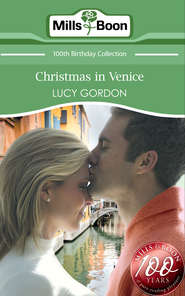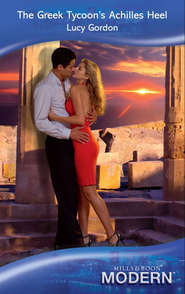По всем вопросам обращайтесь на: info@litportal.ru
(©) 2003-2024.
✖
His Pretend Wife
Автор
Год написания книги
2018
Настройки чтения
Размер шрифта
Высота строк
Поля
When he went out into the corridor again the woman was gone.
He was glad of that.
CHAPTER ONE
SHE would have known him anywhere, any time. Down the length of the corridor. Down the length of the years.
Years that had changed her from a flighty, blinkered young girl who’d thought the world danced to her merry tune, to a bitter, grieving woman who knew that the world was something you had to fight. And you could never, ever really win.
She’d been partly prepared, seeing his name on the hospital literature. Andrew Blake was a common name, and it might not have been him, but she knew at once that it was. Just two words on the page, yet they had brought before her the rangy young man, too tense, too thoughtful, a challenge to a girl who’d known any man could have been hers if she’d only snapped her fingers. So she’d snapped. And he’d been hers. And they’d both paid a bitter price.
She’d planned a glamorous, if ill-defined, career for herself. She would earn a fortune and live in a mansion. The reality was ‘Comfy ’n’ Cosy’, a shabby boarding house in a down-at-heel part of London. The paint peeled, the smell of cabbage clung, and the only thing that was ‘comfy’ was the kindness of her landlady, Mrs Daisy Hentage.
Daisy was peering through the torn lace curtains when the cab drew up, and Elinor helped her daughter onto the pavement. Once Hetta would have protested, ‘I can manage, Mummy!’ And there would have been a mother/daughter tussle, which would have made Elinor feel desperate. But now Hetta no longer argued, just wearily did as she was told. And that was a thousand times worse.
Daisy had the front door open in readiness as they slowly climbed the stone steps. ‘The kettle’s on,’ she said. ‘Come into my room.’ She was middle-aged, widowed, and built like a cushion.
She scraped a living from the boarding house, which sheltered, besides Elinor and her daughter, a young married couple, several assorted students, and ‘that Mr Jenson’ with whom she waged constant war about his smoking in bed.
When the house was full Daisy had only one small room left for herself. But if her room was small her heart was large, and she’d taken Elinor and her little girl right into it. She cared for Hetta while Elinor was out working as a freelance beautician, and there was nobody else the distraught mother would have trusted with her precious child.
After the strain of her journey Hetta was ready to doze off on the sofa. When they were sure she was safely asleep they slipped into the kitchen and Daisy said quietly, ‘Did you see the great man in person, or did you get fobbed off?’
‘Elmer Rylance saw me. They say he always sees people himself when it’s bad news.’
‘It’s much too soon to talk like that.’
‘Hetta’s heart is damaged and she needs a new one. But it has to be an exact match, and small enough for a child.’ Elinor covered her eyes with her hand and spoke huskily. ‘If we don’t find one before—’
‘You will, you will.’ Daisy put her arms around the younger woman’s thin body and held her as she wept. ‘There’s still time.’
‘That’s what he said, but he’s said it so often. He was kind and he tried to be upbeat, but the bottom line is there’s no guarantee. It needs a miracle, and I don’t believe in miracles.’
‘Well, I do,’ Daisy said firmly. ‘I just know that a miracle is going to happen for you.’
Elinor gave a shaky laugh. ‘Have you been reading the tarot cards again, Daisy?’
Daisy’s life was divided between the cards, the runes and the stars. She blindly believed everything she read, until it was proved wrong, after which she believed something else. She said it kept her cheerful.
‘Yes, I have,’ she said now, ‘and they say everything’s going to be all right. You can scoff, but you’d better believe me. Good luck’s coming, and it’s going to take you by surprise.’
‘Nothing takes me by surprise any more,’ Elinor said, drying her eyes. ‘Except—’
‘What?’
‘Oh, it’s just that I thought I saw a ghost today.’
‘What kind of a ghost?’ Daisy said eagerly.
‘Nothing, I’m getting as fanciful as you are. How about another cuppa?’
‘It’s not fair for you to be facing this alone,’ Daisy said, starting to pour.
‘I’m not alone while I’ve got you.’
‘I meant a feller. Someone who’s there for you. Like Hetta’s dad.’
‘The less said about Tom Landers, the better. He was a disaster. I should never have married him. And before him was my first husband, who was also a disaster. And before him…’ Elinor’s voice faded.
‘Was that one a disaster too?’
‘No, I was. He loved me. He wanted to marry me, but I threw him over. I didn’t mean to be cruel, but I was. And I broke his heart.’
‘You couldn’t help it if you didn’t love him.’
‘But I did love him,’ Elinor said softly. ‘I loved him more than I’ve ever loved anyone in my whole life, except Hetta. But I didn’t realise it then. Not for years. By then it was too late.’ Anguish racked her. ‘Oh, Daisy, I had the best any woman could have. And I threw it all away.’
There was more than one kind of ghost. Sometimes it was the other person, teasing you with memories of what might have been. But sometimes it was your own younger self, dancing ahead of you through the shadows, asking reproachfully how she’d turned into you.
To Ellie Foster, sixteen going on seventeen, life had been heaven: an impoverished kind of heaven, since there had never been money to spare in her home or those of her friends, and there had been a lot of ‘making do’. But there had been the freedom of having left school. Her mother had tried to persuade her to stay on, perhaps even go to college, but Ellie had regarded that idea with horror. Who needed boring lessons when they could work in the cosmetics department of a big store? She’d seized on the job, and had had a wage packet and a kind of independence.
Best of all, she’d been gorgeous. She’d known it without conceit because boys had never stopped following her, trying to snatch a kiss, or just looking at her like gormless puppies. That had been the most fun of all.
She’d been tall, nearly five-foot eight, with a slender, curved figure and endless legs. She’d worn her naturally blonde hair long and luxuriant, letting it flow over her shoulders. To her other blessings had been added a pair of deep blue eyes and a full mouth that had been able to suddenly beam out a brilliant smile. She’d had only to give a man that smile…
What appalled Elinor, as she looked back over the years, was her own ignorance in those days. With just a few puny weapons she’d thought she could have the universe at her feet. Who had there been to tell her otherwise? Certainly not the love-struck lads who’d followed her about, practically in a convoy.
They’d formed a little gang, Pete and Clive and Johnny, Johnny’s sister Grace, and another girl who’d tagged along because Ellie had always been the centre of the action, and being part of her entourage meant status. She’d been a natural leader, that had gone without saying. And she wouldn’t be stuck long in Markton, the featureless provincial town where she’d been born. She could be anything she wanted. A model perhaps, or a television presenter, or someone who was famous for being famous. Whatever. The cosmetics counter had only been temporary. The city lights had beckoned, and, after that, the world.
Her seventeenth birthday had been looming, and as Grace had had a birthday in the same week both sets of parents had got together and held the party at Grace’s home, which had been bigger. Ellie had a new dress for the occasion. It looked like shimmering gold and was both too sophisticated and too revealing, as her scandalised mother had protested.
‘Mum, it’s a party,’ Ellie said in a voice that settled the matter. ‘This is how people dress at parties.’
‘It’s much too low,’ her mother said flatly. ‘And too short.’
‘Well, if you’ve got it, flaunt it. I’ve got it.’
‘And you’re certainly flaunting it. In my day only a certain kind of woman dressed like that.’
Ellie collapsed laughing. The things mothers said, honestly! But she gave Mrs Foster a hug and asked kindly, ‘When you were my age, didn’t you ever flaunt it?’
‘I didn’t have it to flaunt, dear. If I’d had—well, maybe I’d have gone a bit mad, too. But then I’d have lost your father. He didn’t like girls who “displayed everything in the shop window”.’
Ellie crowed with delight. ‘You mean he was as much of a stick-in-the-mud then as he is now?’
‘Don’t be unkind about your father. He’s a very nice, kind man.’
‘How can you say that when he wanted to hold you back, stop you having fun?’











